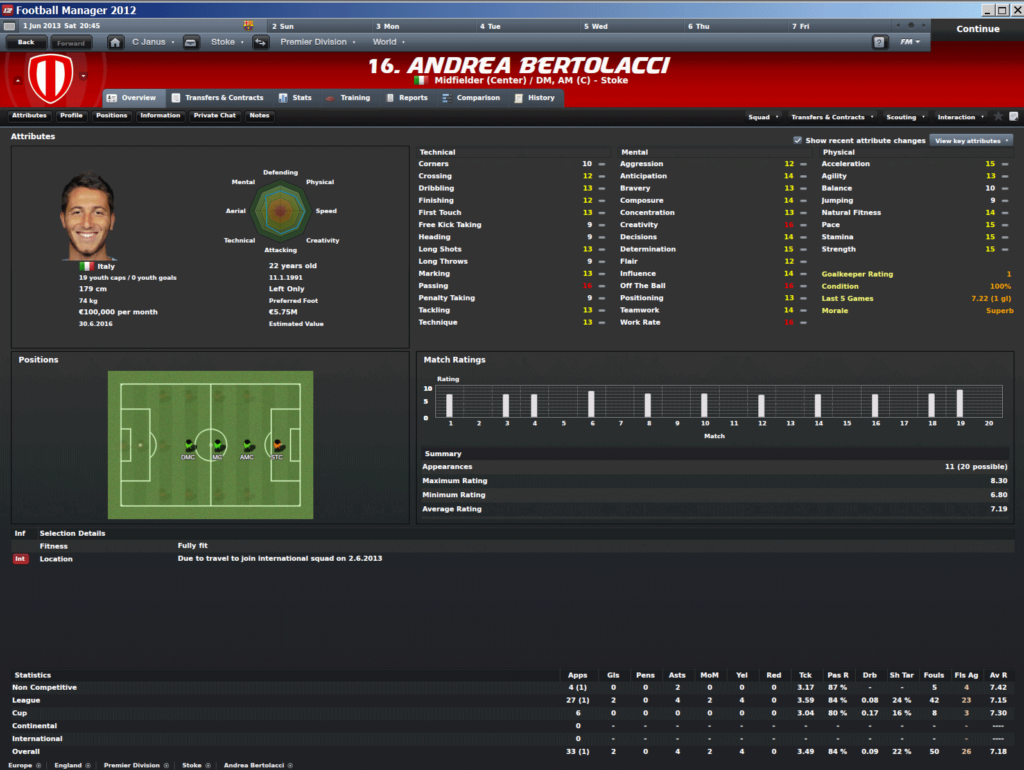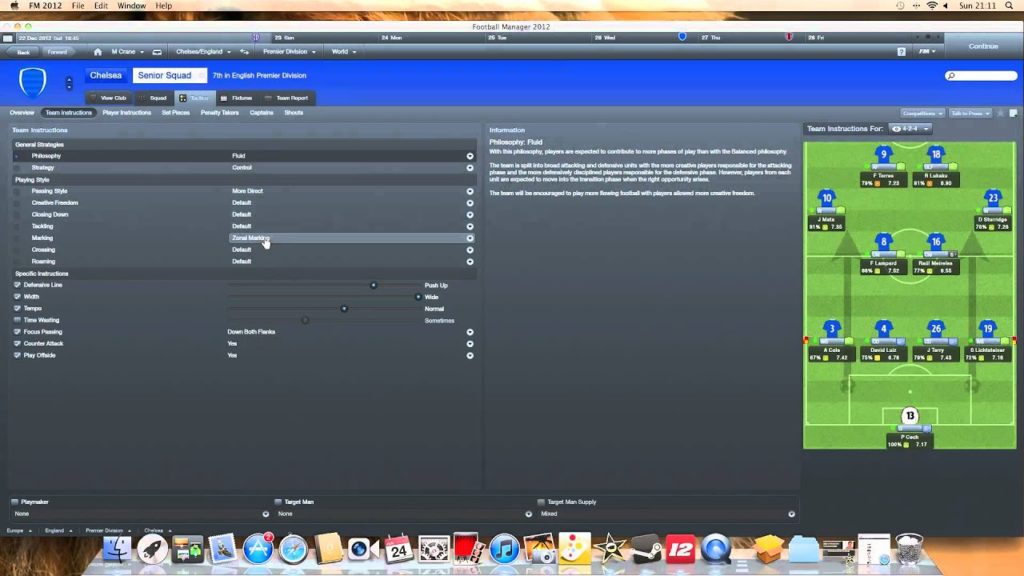It’s a hard road being the perfect manager, and Football Manager 2012 definitely hammers that point home – it’s so in depth it’ll make your head spin, at least at first. As newcomers to the Football Manager series, we take a dive into the world of managing a professional football team – in our case we thought we could do a good job of managing the Wellington Phoenix, and, well, for the most part we did.
On first glance Football Manager 2012 is an absolute overload; the sheer amount of data at your finger tips… the content is absolutely mind boggling, with teams from all over the world. Depending on your PC’s capabilities, Football Manager 2012 will simulate an entire globe of football – making a dynamic, changeable, and living world of football, where players and teams rise and fall and the only thing for certain is change.
With official licenses from around the world, authenticity is definitely the name of the game. Notably, the Hyundai A-League is present – which will please Kiwi fans.
Despite a clean and good looking UI, the number of info screens for you to scan through is difficult to comprehend, but fortunately a relatively competent tutorial system has been implemented – as well as a dynamic help system which will give you information on any screen you are currently looking at.
This makes Football Manager 2012 an acceptable entry for newcomers, but don’t expect it to be easy. You can also relegate a number of tasks to your assistants, leaving you to focus on what you want to focus on.
Initially, having taken command of the Wellington Phoenix, we felt overwhelmed by our options – what to do first – secure contracts for the following season, or look at bringing in some fresh talent? Ultimately these are the hard choices you are going to have to make, even looking at strengthening your coaching team in order to make the most of your young up and comers, or building on your teams strengths.

The realistic dynamics mean that you will have to take into consideration a vast array of factors when putting together a dream team – while working within the financial constraints the board places on you, to whom you ultimately must answer.
For example, we thought it would be great to bring in an Iranian player to strengthen the squad, however the language difficulties which this posed created difficulties on the pitch, with the media demanding to know if we were considering a further Iranian player to provide him company.
This sort of conversation is made all the more entertaining by the fact that you respond dynamically to the media, your own team, and to the board – with a range of conversational tones to get your point across; there’s no need, for example, to be afraid to tell the team that you aren’t happy with their performance.
One of the greatest challenges we faced early on in our career managing the Phoenix, was that a large number of our players were immediately called up for International duty – meaning they were on tour away from the squad. The realities were that, due to the Phoenix’s financial status, they did not have the necessary depth to cover for these absences – something we needed to remedy quickly.

These challenges are dynamic and fun to experience and resolve, and a real part of what got us hooked on Football Manager 2012. A nice Kiwi touch was the fact that our first friendly matches were against clubs such as Glenfield, Petone, and Onehunga. They aren’t playable teams, but they are there and the players are buyable (though their names are generated).
With Football Manager 2012 don’t expect a blinding, action packed pace. A lot of time is spent staring at stats, arranging your team’s tactics, player positions, and overall atmosphere within the team. The match engine itself is somewhat of a disappointment, and it is clear that the emphasis is on the ‘numbers’ behind it.
Simply put, it’s ugly. The animations are rigid, and the pace is sometimes strange, but teams implement your tactics well enough and the match engine serves primarily as a visualisation of the stats behind the engine.

Furthermore the sound effects are nigh-on non-existant. Cheering crowds? Never heard of them; music? Nope. Even kicking the ball around sounds kind of dull. The lack of music is understandable, spending hours dealing with virtual data sheets would make any soundtrack extremely repetitive, but the lack of atmosphere in the matches is not.
The ugly match engine further makes one wonder why the developers thought we’d need YouTube, Facebook and Twitter implementation to show off… show off what exactly?
But that is ultimately beside the point; as we found ourselves continuously coming back for more.
Despite feeling overwhelmed, and despite still feeling occasionally confused delving through the ridiculous amount of information and menus, there’s something really addictive about Football Manager 2012. Perhaps it’s the sense that you really are the puppet-master, pulling the strings and bringing it all together to hopefully propel your team to the top of the tables.
But really it’s that there’s always more work to be done, always more emails to read and meetings to be held – so much so that we started to wonder if we weren’t really a football manager, and for a simulation title like this that’s got to be a good thing.
We would suggest newcomers tread warily, a simulator like this won’t suit everyone and is somewhat of a niche title, but hardcore players will love this new iteration, and the level of detail and depth Football Manager 2012 provides.